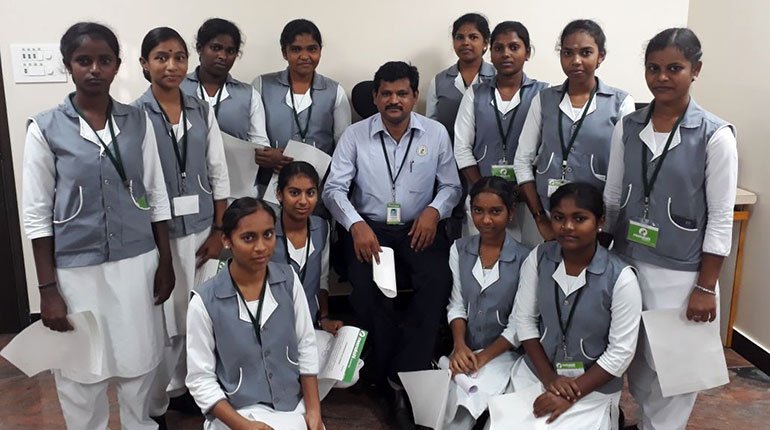Anatomy and Physiology


The Diploma in General Duty Assistant (Nursing) is a vocational course that provides students with the necessary skills and knowledge to assist healthcare professionals in hospitals, clinics, nursing homes, and other healthcare settings. The duration of the course typically ranges from six months to one year, depending on the institution and the specific program.
Course Curriculum:
Anatomy and Physiology
Basic Nursing Care
Patient Hygiene and Safety
Infection Control Practices
Medical Terminology
Vital Signs Monitoring
Patient Mobility and Transfer Techniques
Emergency Care and First Aid
Nutrition and Dietetics
Medical Ethics and Legal Issues
Industrial Training/Internship
Career Opportunities:
Nursing Assistant: Graduates of Diploma in General Duty Assistant (Nursing) can work as nursing assistants or nursing aides in hospitals, clinics, nursing homes, and rehabilitation centers. They assist registered nurses and other healthcare professionals in providing basic patient care, such as bathing, dressing, feeding, and monitoring vital signs.
Home Health Aid: There are opportunities for graduates to work as home health aides, providing assistance and care to patients in their homes. They may help with activities of daily living, medication reminders, and light housekeeping tasks under the supervision of a registered nurse or healthcare provider.
Geriatric Care Assistant: Graduates can specialize in geriatric care and work in assisted living facilities, senior care centers, or retirement communities, providing personalized care and support to elderly residents.
Rehabilitation Assistant: Some graduates may work as rehabilitation assistants in rehabilitation centers or physical therapy clinics, assisting patients with exercises, mobility training, and other therapeutic activities as part of their recovery process.
Medical Assistant: Graduates may work as medical assistants in outpatient clinics, physician's offices, or diagnostic centers, performing administrative tasks, scheduling appointments, and assisting healthcare providers with patient examinations and procedures.
Emergency Medical Technician (EMT): With additional training and certification, graduates can pursue careers as emergency medical technicians (EMTs) or ambulance attendants, providing emergency medical care and transportation to patients in crisis situations.
Healthcare Technician: There are opportunities to work as healthcare technicians in various specialty areas such as cardiology, radiology, or laboratory services, assisting healthcare professionals with diagnostic procedures and patient care tasks.
Continuing Education: Graduates may choose to further their education and pursue advanced certifications or degrees in nursing or healthcare-related fields, expanding their career opportunities and potential for advancement.